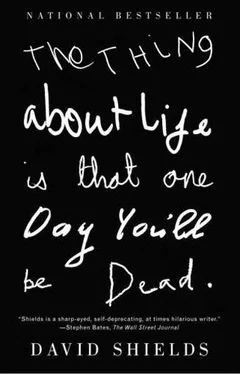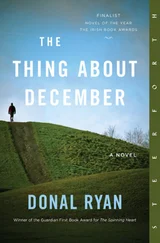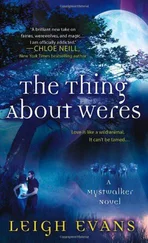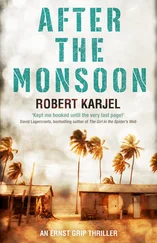I said I did and asked her what day and time would be convenient for her lesson.
“And do you give any other lessons besides tennis?” trilled this siren-cum-tennis pupil.
“Just tennis, lady,” I managed to squeeze out, extending my hand. “The name’s Milt and I’ll see you here tomorrow at 10.”
“Yes, I know,” she replied, still holding my hand. “I’ll be there.” I thought she’d never let go. I needed that right hand for serving up the ball. “The name’s Eva, Eva Gordon.”
The next morning, at a few minutes before 10, I was on the courts with a bushel of used tennis balls and a galloping curiosity as to what kind of tennis player this hand-holding Jezebel would turn out to be. 10:15 and no Eva. Was it all a none-too-subtle ploy to meet and size up the new tennis pro? Conventional wisdom has it that tennis teachers are glamorous and sexy guys, though you wouldn’t recognize me from that description.
Just when I was ready to give up on her, Eva strolled leisurely onto the court, saying, “Here I am, Coach.” She was dressed to the nines in flaming red shorts and a low-cut halter that showed her heart was in the right place.
“Let’s get started,” I snapped, very businesslike. I had another guest coming for a lesson at 11.
Eva was a revelation on the courts. She had the smoothest forehand this side of Helen Wills and a backhand that tore the cover off the ball.
“Do you play for some school?” I asked, signaling a brief time out.
“Yes, Hunter College in the city,” she replied.
Eva stayed for two weeks at Chester’s that first time and took a lesson every day. We also played quite a few sets—ahem—off the courts. She was just as good and explosive at that extracurricular activity as she was on the court.
She returned twice more during the summer for week-long stays and—er—lessons. By Labor Day, we were damned serious, but I had to get back to the city and try to find a job in the heart of the Depression and Eva had to complete her education at Hunter. What’s more, we both knew (we weren’t moonstruck kids) that we’d had a summer fling, one to be treasured, but—for a lot of reasons—not followed up. It was great while it lasted, we both agreed over a tall drink at the hotel bar.
Arteriosclerosis can begin as early as age 20.
As you age, your responses to stimuli of all kinds become slower and more inaccurate, especially in more complex tasks. From age 20 to 60, your reaction time to noise slows 20 percent. At 60, you make more errors in verbal learning tasks. At 70, you will experience a decline in your ability to detect small changes, such as the movement of a clock hand.
Given a list of 24 words, an average 20-year-old remembers 14 of the words, a 40-year-old remembers 11, a 60-year-old remembers 9, and a 70-year-old remembers 7.
Most people reach skeletal maturity by their early 20s. At 30, you reach peak bone mass. Your bones are as dense and strong as they’ll ever be. Human bones, with their astonishing blend of strength and flexibility, can withstand pressure of about 24,000 pounds per square inch—four times that of reinforced concrete—but if you were to remove the mineral deposits, what you would have left would be flexible enough to tie into knots. In your late 30s, you start losing more bone than you make. At first you lose bone slowly, 1 percent a year. The older you get, the more you lose.
Beginning in your early 20s, your ability to detect salty or bitter things decreases, as does your ability to identify odors. The amount of ptyalin, an enzyme used to digest starches, in your saliva decreases after age 20. After age 30, your digestive tract displays a decrease in the amount of digestive juices. At 20, in other words, your fluids are fleeing, and by 30, you’re drying up.
Lauren Bacall said, “When a woman reaches twenty-six in America, she’s on the slide. It’s downhill all the way from then on. It doesn’t give you a tremendous feeling of confidence and well-being.”
Jimi Hendrix died at age 27, as did Janis Joplin, Jim Morrison, Brian Jones of the Stones, Kurt Cobain, and bluesman Robert Johnson.
Until you’re 30, your grip strength increases; after 40, it declines precipitously. After age 65, your lower arm and back muscle strength declines. Owing to reduced coordination rather than loss of strength, your power output—e.g., your ability to turn a crank over a period of time—falls after age 50. My father, on the other hand, could defeat me in arm-wrestling halfway into his 60s.
At age 30, men show a decline in enthusiasm for typically masculine activities such as sports, drinking, and car repairs. Be grateful, I say, for small favors. Still, easily one of the happiest moments of my life occurred when, nearly 30 and in grad school, I went with several of my classmates to the gym to play basketball. Out on the wing on a fast break, I caught the ball, reverse-spun on William Mayfield, who started at forward for the University of Iowa basketball team, and beat him to the hoop. (Was he dogging it? Who knows? I don’t want to know.) My fellow grad-student nerds went nuts; they all kept saying, “You don’t even look like a basketball player!” Glasses, love handles, etc. Hoop dream (vii), undoubtedly.
Nicholas Murray said, “Many people’s tombstones should read, ‘Died at 30. Buried at 60.’” The ancient Persians believed that the first 30 years should be spent living life and the last 40 years should be spent understanding it. Reversing the time periods, Schopenhauer said, “The first forty years of life give us the text; the remaining thirty provide the commentary on it.” According to Rousseau: “Man is always the same: at ten he is led by sweetmeats; at twenty by a mistress; at thirty by pleasure; at forty by ambition; at fifty by avarice; after that, what is left for him to run after but wisdom?” At every age, 10 or 90, my father has been a pleasure-seeking missile.
Since your vertebral column continues to grow until you’re 30, you might gain anywhere from three to five millimeters in height between ages 20 and 30. Starting at 30, though, you lose one-sixteenth of an inch in height per year; your posture changes because your vertebrae shrink while your hips and knees bend closer to the ground and your foot arch flattens. My father has shrunk from 5'11" to 5'7". As you age, you lose body water and your organs shrink: your body consumes 12 fewer calories per day for each year of age over 30.
For most people, the ability to hear higher sound frequencies begins to decline in their 30s; men are 3½ times more likely than women to show a decline in their ability to hear high notes. Whatever level of loss is found, it will get, on average, 2½ times worse each decade. The sweat glands that keep the auditory canal moist die off one by one; ear wax becomes drier and crustier, and hard wax builds up to block out sounds. One-third of hearing loss in older people is due to this buildup. Your eardrum becomes thinner and more flaccid, causing the drum to be less easily vibrated by sound waves. You progressively lose your ability to hear sound at all frequencies.
The limbic system—“the seat of emotions”—exists in a part of the brain, the hippocampus, that humans share with lizards. (Your brain has three layers: the brain stem, controlling basic functions and basic emotions, is the reptilian layer; the mammalian layer houses more complex mental functions such as learning and adaptability; and the third layer constitutes most of the human brain—the cerebral cortex and cerebellum—which allows us to use language and perform complex acts of memory.) Beginning at age 30, parts of the hippocampus die off.
Emerson said, “After thirty, a man wakes up sad every morning, excepting perhaps five or six, until the day of his death.”
Читать дальше












